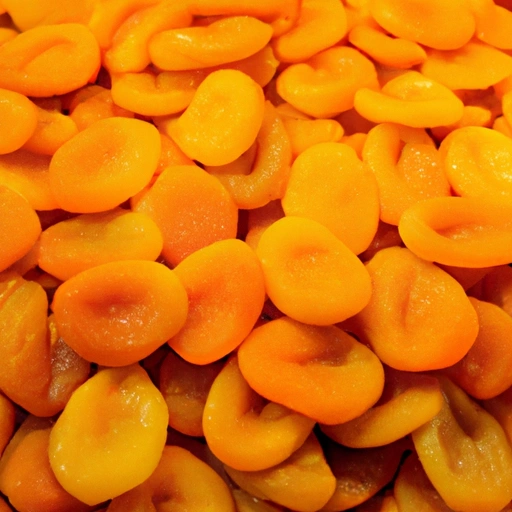Dried Apricot
Description

Dried apricots are a delectable and nutritious fruit that undergoes a drying process to remove moisture while preserving its flavor and extending its shelf life. The result is a concentrated and sweet treat that's not only a pleasure to eat but also rich in nutrients and very versatile in cooking. Dried apricots are widely available and can be used in both sweet and savory dishes, making them a staple in many kitchens around the globe.
Common uses
Dried apricots are commonly used as a snack, in trail mixes, and as an ingredient in various culinary preparations. They are often found in breakfast cereals, granolas, and energy bars given their natural sweetness and chewy texture. In addition, they are frequently used in baking, where they provide moisture and sweetness to cakes, cookies, and breads. Dried apricots are also a popular addition to savory dishes such as stews, tagines, and stuffings, where they impart a subtle sweetness and tang.
Nutritional value
Calories
A one-ounce serving (about 28 grams or 2-3 dried apricots) contains approximately 68 calories.
Protein
Dried apricots contain about 0.49 grams (g) of protein per ounce.
Fat
They are low in fat, with roughly 0.14 g per ounce.
Carbohydrates
Carbohydrates make up about 17.78 g per ounce, with most of these being sugars.
Vitamins
Dried apricots are an excellent source of vitamin A and also provide vitamin C and several B vitamins.
Minerals
They are rich in potassium, with an ounce containing about 398 milligrams (mg), and also provide magnesium, phosphorus, and calcium.
Health benefits
The high nutrient content of dried apricots contributes to several health benefits, including improved vision due to vitamin A, better digestion because of the dietary fiber, and the maintenance of electrolyte balance thanks to the potassium. The iron in apricots can help prevent anemia, and the antioxidants may neutralize harmful free radicals in the body.
Potential risks
While dried apricots are healthy, they are also high in sugars and can contribute to dental cavities if consumed in large amounts. They also may be treated with sulfur dioxide to preserve color, which can trigger asthma and allergy symptoms in sensitive individuals. It's important to consume them in moderation and to opt for unsulfured varieties if possible.
Common recipes
Dried apricots are used in a myriad of recipes ranging from Moroccan tagines, Turkish delight, apricot jams, and various bakery items like scones, muffins, and fruitcakes. They are also used in holiday stuffing recipes, glazes for meats, and as a sweet addition to salads.
Cooking methods
Rehydrating dried apricots by soaking them in water or juice can enhance their flavor and texture before adding them to cooked dishes. They can also be chopped and added directly to baked goods or blended into smoothies and sauces.
Pairing with other ingredients
Dried apricots pair well with nuts like almonds and walnuts, cheeses such as goat cheese and brie, and spices including cinnamon, nutmeg, and cardamom. They also complement meats such as chicken, lamb, and pork.
Summary
Dried apricots are a sweet, nutritious, and versatile ingredient that has been enjoyed throughout history. With their rich nutrient profile, including vitamins, minerals, and fiber, they offer numerous health benefits. While they are best consumed in moderation due to their sugar content and potential preservatives, they are undoubtedly a valuable addition to many dishes, providing flavor, texture, and nutritional advantages.